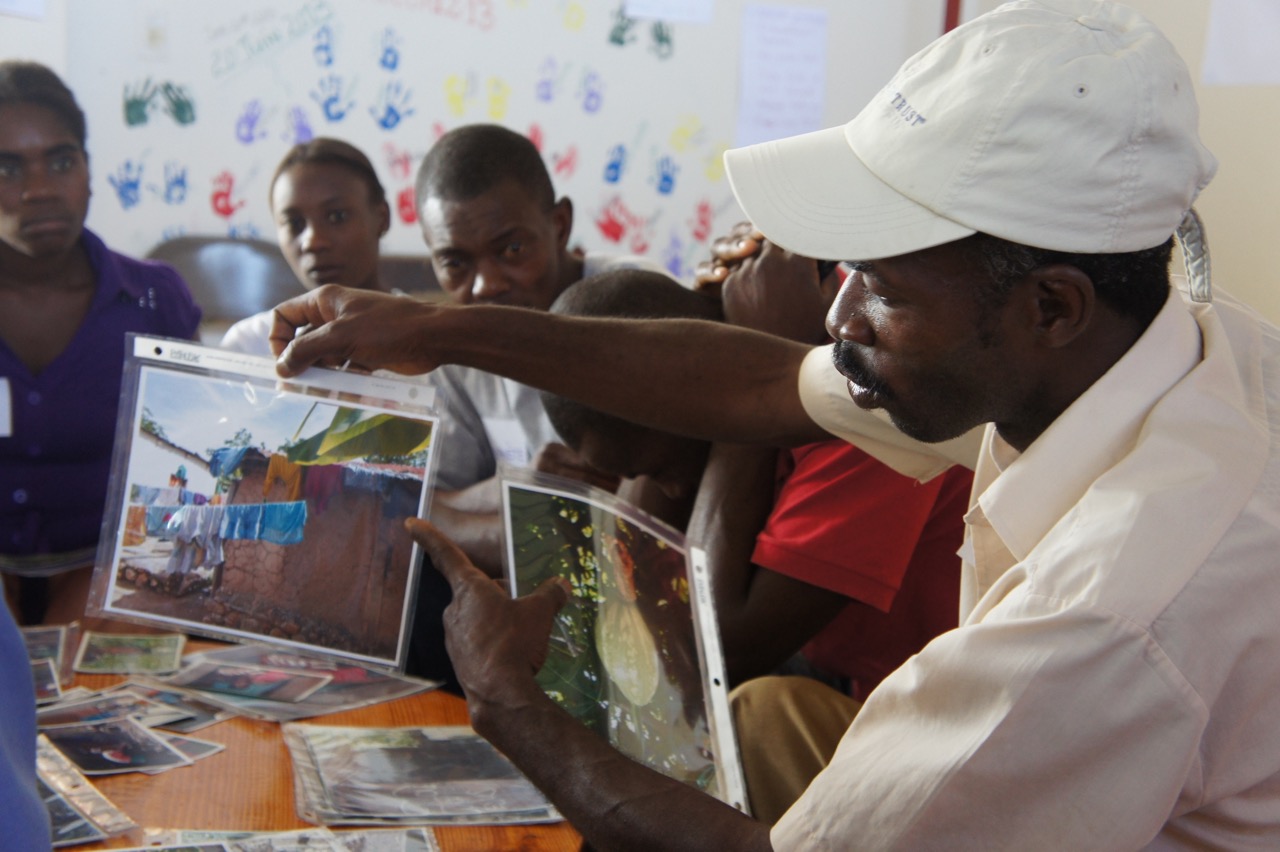
In January 2014 we did a blog post about the participatory research that was being conducted at the Children’s Academy by our close associate and PhD candidate, Jayne Engle. Since this time Jayne has continued her research and begun presenting her findings.
Below is an abstract from research that Jayne presented last weekend at the ACSP conference (Association of Collegiate Schools of Planning) in Houston, Texas. Click here to view her full slide presentation.
HP is thrilled about our collaboration with Jayne. Her participatory approach aligns with our values in so many ways. It seeks to learn while showing the utmost respect to the local subjects of that learning, and all the while encouraging greater accountability to the objectives of our work. We look forward to continuing to collaborate and learning more about Jayne’s findings as she continues her work on her dissertation.
For more information on Jayne’s research and findings, you can contact erik@haitipartners.org.
Can disasters open pathways to social change?
Investigating community development through participatory methodologies
and qualitative longitudinal research
Jayne Engle, PhD candidate
McGill University
Investigating social change is a long-term and often elusive endeavour, particularly in a post-disaster context that is characterized as the ‘outer periphery’ of the world economic system by Robert Fatton (2014). Five years after the earthquake in Haiti, which left more than 220,000 people dead, 1.5 million homeless, and which destroyed most buildings of central government and thousands of schools, hospitals, and local institutions, the situation remains dire. Reconstruction has been slow and most Haitians continue to struggle with daily survival. What can be done? According to many, reconstruction efforts can only succeed through improved collaborations with Haiti’s complex and resilient social institutions. Likewise, broader international development discourses recognize the importance of locally-based ‘people-centered’ approaches, ‘participatory development’ and ‘agency’. However, social institutions in Haiti have substantially eluded conventional strategies of international development, which often reveal only superficially the macro numbers of development tendencies. Qualitative analyses that investigate community development in a context-specific and distinctly human way are lacking. Such analyses are needed in order to reveal patterns of social change in communities.
In my doctoral thesis, I investigate NGO-community development collaborations and seek to expose in what ways they may be contributing (or not) to social change. The principal community of this study is Bellevue-la-Montagne, Haiti where collaborative community development efforts began in the year following the earthquake when local residents and NGOs discussed strategies for rebuilding their area which had been hit hard by the quake. Through participatory practices, the community decided on an education-centered approach to community development that incorporates social enterprise, sustainability initiatives, community health, and democratic decision-making practices.
My methodology combines case study, participatory approaches, and narrative analysis. This strategy attempts to give ‘voice’ to communities in their struggles to overcome the main barriers to realizing change, including how relationships of power shape community development and decision-making processes. Consistent with phronesis research (as in Flyvbjerg 2001), my strategy of inquiry focuses on combining both actor and structural levels of analysis — understanding from within and from outside. I use methods of participatory photography, participatory mapping, community walks, probe-based and household interviews, focus groups, and video interviews. This research methodology has as its lens participatory and transformative theories that are value-laden by social justice, sustainability, participation, and an ideology of equality (Freire, 1972 and Ledwith, 2011).
Early findings reveal that 1) Participants tend to value community over individual wellbeing, and despite challenges of everyday survival, people take a long view and hope for a better future for their children; 2) People feel that their voices have been heard and that they have contributed to shaping community development decisions; 3) People do not expect the state to act in their interests (such as by providing police protection or assistance to reconstruct their homes). They expect that positive change can only come about through their working together with others in the community more effectively and, to a lesser extent, with assistance from international organizations.
In order to continue learning from people’s lived experiences over time, this study is designed to enable qualitative longitudinal research. With this we aim to expose dynamics of social change over the years that will track conditions, perceptions, and outcomes of participants, their families and local communities. With collaborators, I hope to contribute to improved community development policy, research, and practice in Haiti and broader structural transformation where citizens’ voices are heard and communities are empowered to realize their aspirations for change.
Please visit our videos about our participatory practice and research in Haiti (6-minute and 13-minute versions): vimeo.com/jayneew
References
Fatton Jr., R. F. (2014). Haiti: Trapped in the Outer Periphery. Boulder, CO: Rienner Press.
Flyvbjerg, B. (2001). Making Social Science Matter. Cambridge, UK: Cambridge University Press.
Freire, P. (1972). Pedagogy of the Oppressed: 30th anniversary edition. New York: Continuum.
Ledwith, M. (2011). Community Development: A critical approach. 2nd ed. Bristol, UK: The Policy Press.

